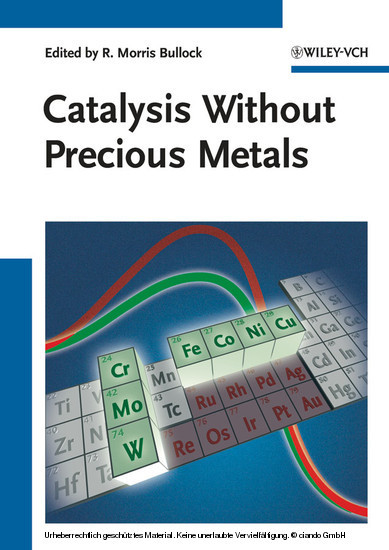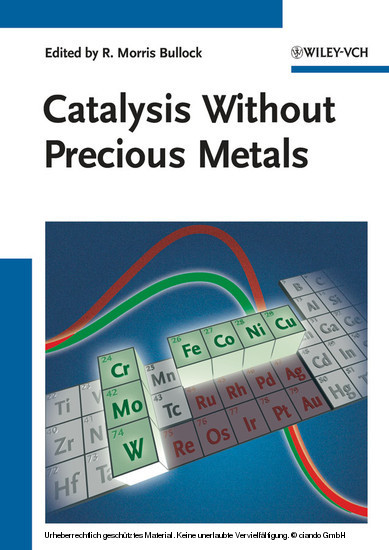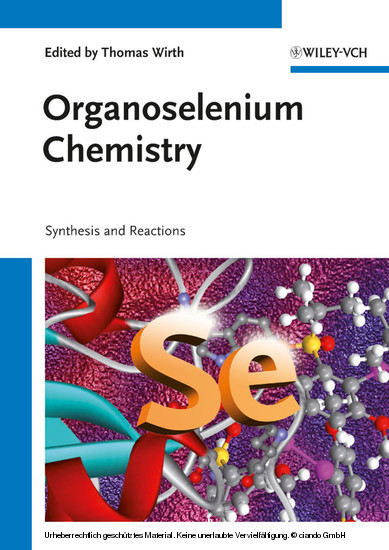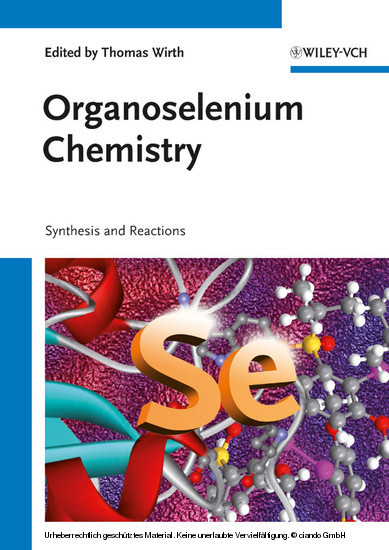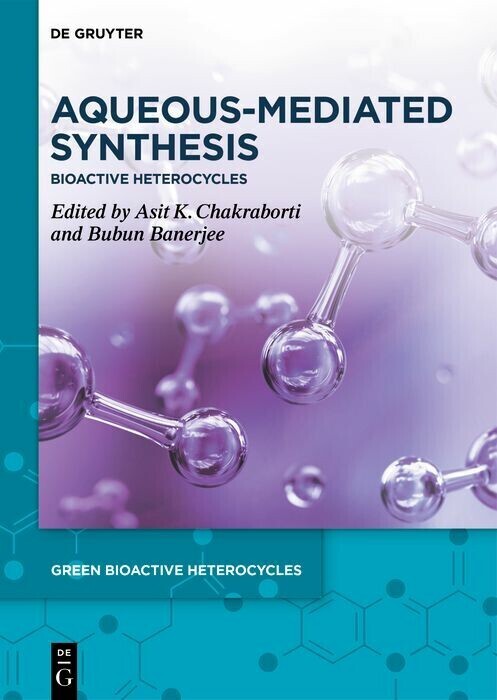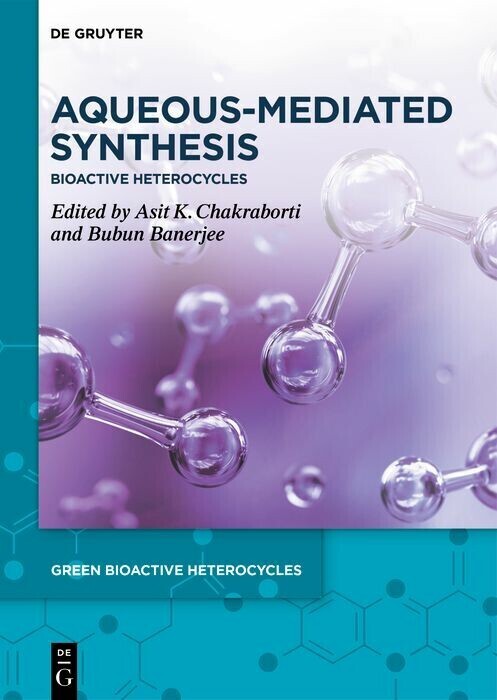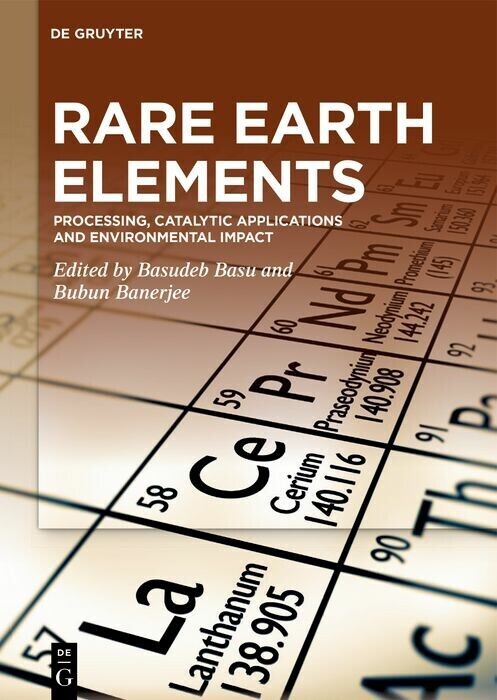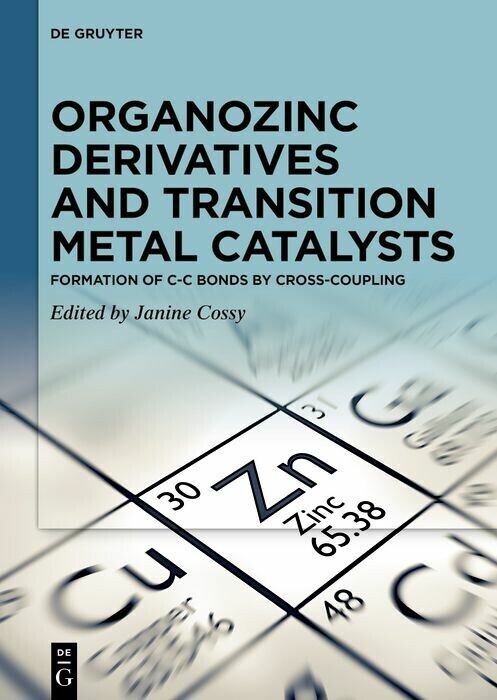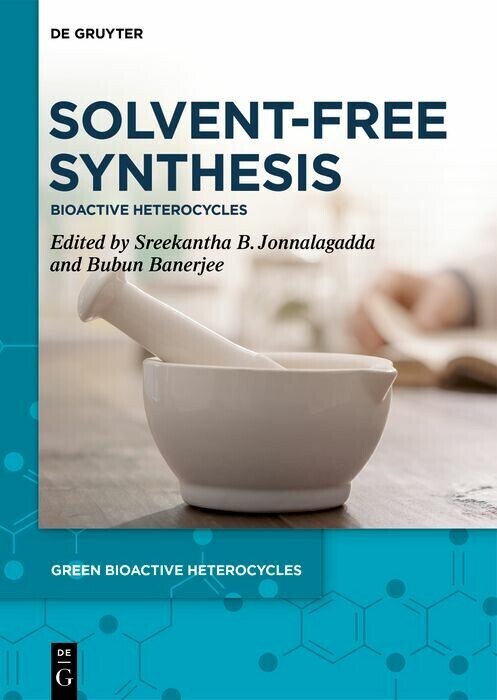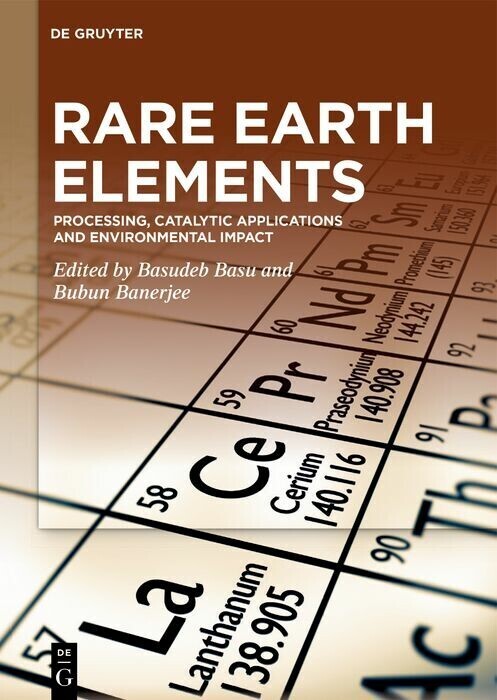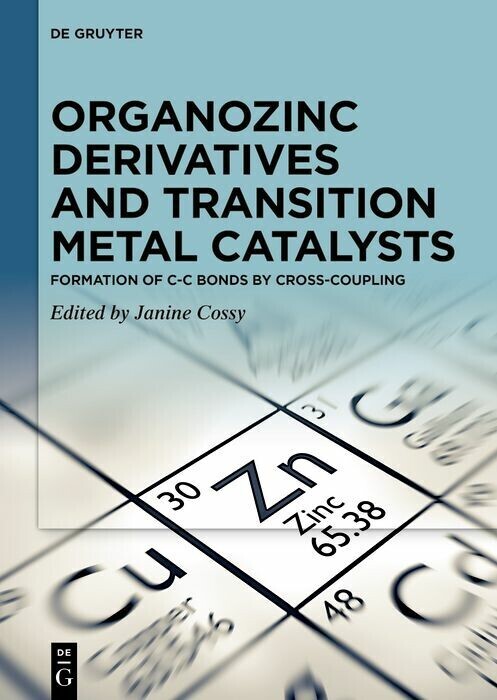Catalysis without Precious Metals
Written for chemists in industry and academia, this ready reference and handbook summarizes recent progress in the development of new catalysts that do not require precious metals. The research thus presented points the way to how new catalysts may ultimately supplant the use of precious metals in some types of reactions, while highlighting the remaining challenges.
An essential copanion for organic and catalytic chemists, as well as those working with/on organometallics and graduate students.
From the contents:
* Catalysis Involving the H' Transfer Reactions of First-Row Transition Metals
* Catalytic Reduction of Dinitrogen to Ammonia by Molybdenum Complexes
* Molybdenum and Tungsten Catalysts for Hydrogenation, Hydrosilylation and Hydrolysis
* Iron in Catalytic Alkene and Carbonyl Hydrogenation Reactions
* Olefin Oligomerizations and Polymerizations Catalyzed by Iron and Cobalt Complexes
* Cobalt and Nickel Catalyzed Reactions Involving C-H and C-N Activation Reactions
* Development of Molecular Electrocatalysts for H2 Oxidation and Production Based on Inexpensive Metals
* Nickel-Catalyzed Reductinve Couplings and Cyclizations
* Copper-Catalyzed Ligand Promoted Ullmann-Type Coupling Reactions
* Copper-Catalyzed Azide-Alkyne Cycloaddition
* 'Frustrated Lewis Pairs': A Metal-Free Strategy for Hydrogenation Catalysis
After 21 years at Brookhaven National Laboratory in Long Island, New York, Morris Bullock moved to Pacific Northwest National Laboratory in 2006, where he is a Laboratory Fellow, as well as Director of the Center for Molecular Electrocatalysis. Dr. Bullock's research interests focus on reactivity of metal hydrides, including proton transfer, hydride transfer, and hydrogen atom transfer reactions, and on the development of molecular catalysts for the oxidation of hydrogen and production of hydrogen.
An essential copanion for organic and catalytic chemists, as well as those working with/on organometallics and graduate students.
From the contents:
* Catalysis Involving the H' Transfer Reactions of First-Row Transition Metals
* Catalytic Reduction of Dinitrogen to Ammonia by Molybdenum Complexes
* Molybdenum and Tungsten Catalysts for Hydrogenation, Hydrosilylation and Hydrolysis
* Iron in Catalytic Alkene and Carbonyl Hydrogenation Reactions
* Olefin Oligomerizations and Polymerizations Catalyzed by Iron and Cobalt Complexes
* Cobalt and Nickel Catalyzed Reactions Involving C-H and C-N Activation Reactions
* Development of Molecular Electrocatalysts for H2 Oxidation and Production Based on Inexpensive Metals
* Nickel-Catalyzed Reductinve Couplings and Cyclizations
* Copper-Catalyzed Ligand Promoted Ullmann-Type Coupling Reactions
* Copper-Catalyzed Azide-Alkyne Cycloaddition
* 'Frustrated Lewis Pairs': A Metal-Free Strategy for Hydrogenation Catalysis
After 21 years at Brookhaven National Laboratory in Long Island, New York, Morris Bullock moved to Pacific Northwest National Laboratory in 2006, where he is a Laboratory Fellow, as well as Director of the Center for Molecular Electrocatalysis. Dr. Bullock's research interests focus on reactivity of metal hydrides, including proton transfer, hydride transfer, and hydrogen atom transfer reactions, and on the development of molecular catalysts for the oxidation of hydrogen and production of hydrogen.
Bullock, R. Morris
| ISBN | 9783527632404 |
|---|---|
| Artikelnummer | 9783527632404 |
| Medientyp | E-Book - ePUB |
| Copyrightjahr | 2011 |
| Verlag | Wiley-VCH |
| Umfang | 306 Seiten |
| Sprache | Englisch |
| Kopierschutz | Adobe DRM |

